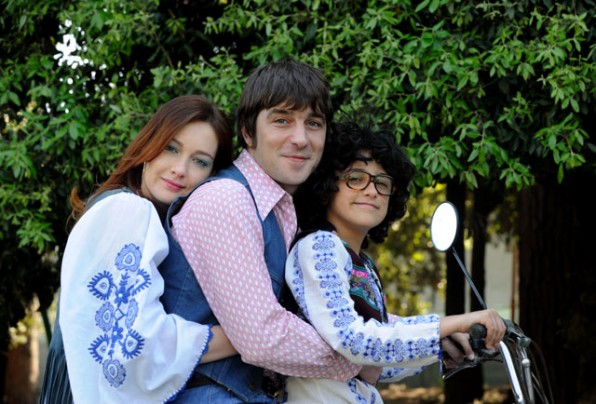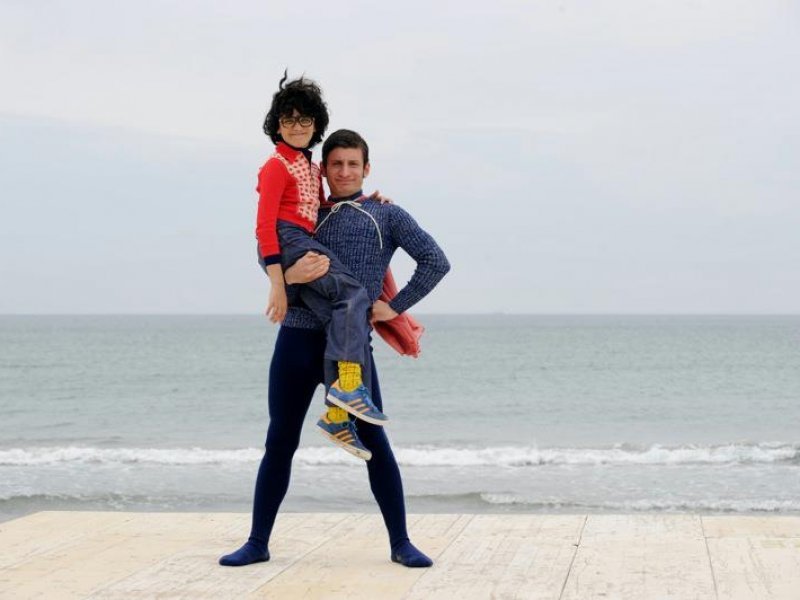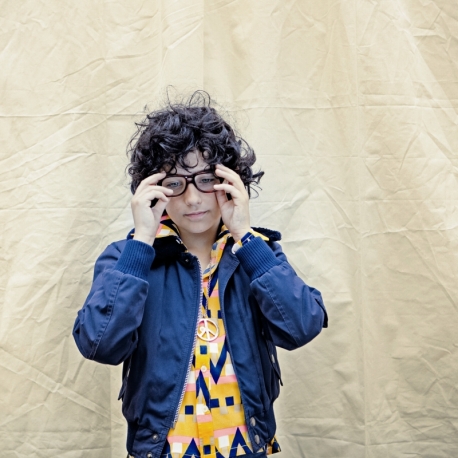Edited by: Matilde Casaglia, correspondent from London
Name: Ivan Cotroneo – www.ivancotroneo.it
Ivan Cotroneo is a successful Italian director, screenwriter and writer. He was born in Naples in 1968 and studied cinema in Rome where he graduated in 1992. Since then his career never stopped growing, he published four novels and wrote or collaborated in a large number of screenplays for movies as well as for talk shows.
The film Kryptonite nella borsa (Kryptonite in the bag) has been adapted from his homonymous novel, written in 2007. He wrote the script from his own novel with the help of two other screenwriters: Ludovica Rampoldi and Monica Rametta. The film has been displayed at the CINE LUMIERE in London, for the second edition of Cinema Made In Italy.
The film is set in an intriguing and beautiful Naples, inside the rooms of a peculiar and bizarre family. The perspective is through the eyes of Peppino, a nine year old boy with a big pair of glasses and a special pure candour. During the film the little boy has to face a number of unpredictable facts: his mother Rosaria falls into depression because her husband (father of Peppino) is cheating on her, his cousin Gennaro who is convinced he is Superman dies under a bus, and he is left in the hands of his young aunt and uncle (Titina and Libero) who are freewill hippies. They take him to parties and lesbian demonstrations without looking after him enough. Following the death of his Super-cousin Gennaro, Peppino’s imagination recreates his character in reality whenever he has to face a difficult situation in finding his path to the adult world.
As a writer and a director, do you think the title of the film is important for viewers?
The title is crucial, and this is the reason why I chose to explain the meaning of this title in the very first scene, in the movie as well as in the novel.
Kryptonite is literally a mineral, and it scares (without logical reasons) Gennaro, the weirdo cousin of the protagonist (who believes he is Superman). The literal meaning of the title is immediately explained, but the allegoric meaning is developed in the duration of the film. Kryptonite is everything that hinders our happiness, everything that impedes us in expressing ourselves freely without being careful of what other people expect from us. Kryptonite is everything that could create a limit to our capacities. This is what Superman wants to teach to the protagonist: to be loyal to himself against any external obstacles.
When you are writing a screenplay or a novel, your inspiration comes from a story or from a character?
I must say from a character. Also as a viewer or as a reader, my favourite films and books are the ones in which the focus is on a strong character who is free, alive and real. If you have a good character in your mind, you will write a good story.
With this story, I started from the perspective of this young child, in a chaotic family, with his big and funny glasses, that uses the power of evocative imagination to face the difficulties of life. This little boy who is still of the age in which the border between reality and imagination is blurred.
Was it important for you to set the movie in your hometown, Naples?
I left Naples when I was 22, the typical age in which you need new places and new experiences. When I left I was having a really controversial relationship with my hometown. I was trying to pretend that I didn’t belong to her, to Naples. Of course it wasn’t true. Our roots are always a fundamental part of ourselves. I realised when I saw the film that I had made peace with my city, and that I was proud to show her beauty to the world on the big screen. Naples it’s such a fascinating city, but it’s also very obtrusive, and those are the two reason why I couldn’t get rid of it.
Was the Soundtrack your own choice?
Yes, when I gave to the producers the final version of the screenplay I sent them a CD as well. Every song in the film is an important song for me. Especially Changes by David Bowie in the last scene. I wanted the music to explain the feelings and thoughts of my characters. I chose Lust For Life, even if it was released in 1976 after the setting of the film, in 1973. For this reason I printed a special label for the LP which is called “Lust for life special pre-edition 1973”. I asked Planet Funk to make a special cover of “These boots are made for walking” for the film credits at the end.
There is a dialogue between the two hippie uncles, in which Libero says to Titina: “You have to promise me that we will escape from this country, we will escape to London. But we have to believe, otherwise we’ll never do it.” Is this a story of the Italian young generation?
When I think about Libero and Titina I am sorry for them, because I have the impression that they didn’t believe enough in what they wanted from their lives. Maybe they were too comfortable or lazy, maybe they were too bound to their situation. This film is about unfair fates, but also about characters that find the courage to rebel against their unfair fate. Some of them find a way to rebel, some don’t, like Titina and Libero. But this is a story about two characters, not about an entire generation. When I think about their story a tale from James Joyce, Dubliners comes to my mind. Eveline, the protagonist of this story, really wants to leave Dublin. She packs all her stuff, she goes to the harbour, the boat is ready to go. And, suddenly, she turns around, and she slowly goes back home. This is the fear, this is the Kryptonite. Fear of rebelling, fear of not being able to match other ones’ expectations, fear of leaving an old life for gain a new one. If I had a child, I would teach him not to be afraid, not to be scared in taking his own path. Like the young Peppino, who at the end is, in his own way, ready to face the adult world.















